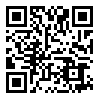Volume 2, Issue 4 (2-2022)
2022, 2(4): 79-96 |
Back to browse issues page
Download citation:
BibTeX | RIS | EndNote | Medlars | ProCite | Reference Manager | RefWorks
Send citation to:



BibTeX | RIS | EndNote | Medlars | ProCite | Reference Manager | RefWorks
Send citation to:
(2022). The effectiveness of verbal self-instruction on social competence and self-esteem of students with specific learning disorder in Sanandaj. Journal of Childhood Health and Education. 2(4), 79-96.
URL: http://jeche.ir/article-1-66-en.html
URL: http://jeche.ir/article-1-66-en.html
Abstract: (2327 Views)
Introduction: verbal self-instruction is one of the methods for management and rehabilitation of various neurodevelopmental disorders. This method is derived from Wigotsky and Loria approach, developed and introduced by Mickenbam (1986) as one of the scourge procedures to management of these disorders. The purpose of this study was to determine the effectiveness of verbal self-instruction on social competence and self-esteem of students with specific learning disorder.
Research method: the statistical population of this study was all male students with reading, writing and mathematical learning disorder in elementary schools in Sanandaj at fourth, fifth and sixth grade, 20 of these students using the available sampling method in the sample group, the study was randomized; in the next step, using random sampling, these 20 participants were divided into two groups of 10 participants of experience and control. The design method of this research is a semi-experimental design with two groups. Fellner social competence scale (1990) and Rosenberg self-esteem scale (1979) were used in pre-test and post-test. The self-instruction training program was implemented for 8 sessions of 90 minutes for experimental group and finally, results were analyzed using MANCOVA by SPSS 22.
Results: the findings showed that verbal self-instruction did not have a significant change on social competence but, had a significant effect on self-esteem.
Discussion: according to the effectiveness of verbal self-instruction on children’s self-esteem, we can use it as a management procedure to intervention of children with specific disorder but we can say that we need a lot of studies to show the efficacy of this method to improve social competence of children with specific disorder.
Research method: the statistical population of this study was all male students with reading, writing and mathematical learning disorder in elementary schools in Sanandaj at fourth, fifth and sixth grade, 20 of these students using the available sampling method in the sample group, the study was randomized; in the next step, using random sampling, these 20 participants were divided into two groups of 10 participants of experience and control. The design method of this research is a semi-experimental design with two groups. Fellner social competence scale (1990) and Rosenberg self-esteem scale (1979) were used in pre-test and post-test. The self-instruction training program was implemented for 8 sessions of 90 minutes for experimental group and finally, results were analyzed using MANCOVA by SPSS 22.
Results: the findings showed that verbal self-instruction did not have a significant change on social competence but, had a significant effect on self-esteem.
Discussion: according to the effectiveness of verbal self-instruction on children’s self-esteem, we can use it as a management procedure to intervention of children with specific disorder but we can say that we need a lot of studies to show the efficacy of this method to improve social competence of children with specific disorder.
Keywords: verbal self-instruction, specific learning disorder, social competence, self-esteem, students
Type of Study: Research |
Subject:
Special
Received: 2021/12/3 | Accepted: 2022/02/20 | Published: 2022/03/12
Received: 2021/12/3 | Accepted: 2022/02/20 | Published: 2022/03/12
| Rights and permissions | |
 |
This work is licensed under a Creative Commons Attribution-NonCommercial 4.0 International License. |


